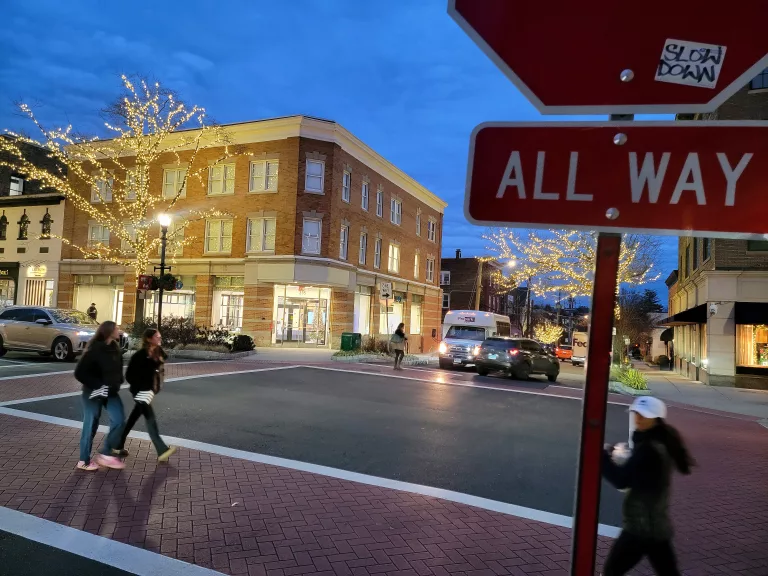By Carline Martin
Welcome to The Real Scoop. This monthly column is intended to help homeowners and potential homeowners in our community address a variety of home related and real estate issues. As a Realtor, I am often approached by many homeowners and buyers to provide answers for a variety of questions pertaining to Greenwich and all things home related. In my quest to provide answers, I have relied on my own expertise, as well as that of many trade professionals I have come to know in our community. The information I have provided has been deemed very useful and greatly appreciated, so I have decided to share what I know with the Greenwich community. Here is this month’s selected question:
Q: I have currently started looking for my first home. My real estate agent advised me to get my financing approved now so I know how much I can afford. I’m really excited about buying a home of my own but I find the financial end of the picture intimidating and overwhelming, especially since I am self-employed. What is your advice for how I can navigate this without raising my blood pressure?
A: Thank you for your question. First and foremost, allow me to congratulate you on the tremendous milestone you are about to embark on. There are few things more exciting than shopping for your first home; walking into a beautiful home and imagining your future unfold. The shopping component is, undoubtedly, the fun part. The financing end, not so much. However, your agent is correct that it is wise to know how much you can afford before you begin looking. The last thing you want is to find that home that makes your heart sing, only to discover you aren’t approved for the financing to pay for it.
The first step is to find a good mortgage broker. Your agent should be able to recommend someone they have had good success with. Normally, a mortgage broker will ask for paystubs to determine your monthly income. However, because you are self-employed this is not something you can provide. This should not deter you, however. As long as you can submit tax returns for the past 2 years, this should suffice. Additionally, if you own a business and are not just self-employed as an independent contractor, lenders will want to see a profit and loss statement for your business.
As with any borrower, lenders will consider your debt-to-income ratio or DTI. Even if you earn an attractive income, lenders may not find you to be a viable candidate if you have accrued a high level of debt. What you spend is, as least, as important as what you earn. For W-2 borrowers, lenders typically will not lend to someone whose debt is higher than 43% of their income. As self-employed borrowers are seen as high risk, their DTI allowance is lower.
Probably the most important thing to pay attention to is your credit score. If you don’t, your lenders, certainly will. As with almost everything else in the financial world, when applying for a mortgage, your credit score matters a great deal. This is the strongest indicator to lenders of how much of a risk you will be. A credit history that reflects low credit balance, on-time payments and responsible use of credit is what lenders like to see. Not only will this help you get approved but you will be more likely to qualify for a lower interest rate on your mortgage.
As rates and terms can be different across various lenders, it is best to sit down with a good mortgage broker and discuss all of this. Once they have your information, they will shop for the best loan for you.
Q: My homeowner’s insurance was recently cancelled. I am confused as to why but more puzzling is why I am having difficulty finding another company that is willing to insure my home and those that will, want a ridiculous premium. I’ve been with the same company for years and always paid my premium on time.
A: I am very sorry to hear you are having these issues. Insurance is one of those things that most of us would rather not think about but we are glad we have it when we need it. There are a few factors that could be responsible for your insurance company cancelling your policy. Lack of payment or allowing your policy to lapse is the first thing that comes to mind. However, since you say that your policy was in good standing and has been with the same company for many years, this would not apply to you. It could be for one of many other reasons.
Submitting multiple claims is a huge red flag with insurance companies. While most homeowners would ask why they would be penalized for using something they are paying for, insurance companies are essentially hedging a bet that they will collect your premium and have to give less back than they collect. If they find that they are paying multiple claims on the same policy, this no longer appears to be a good investment for them so they either get out of the relationship or raise premiums to cover their losses. Too many claims may also signal that there is an underlying maintenance issue with the home. For buyers who are considering the purchase of a home, you should investigate how many claims were filed on the home in the past 5 years and also buying a Home Seller’s Disclosure Report from the Comprehensive Loss Underwriting Exchange.
If the home is located in an area where natural disasters are a strong possibility, such as a flood zone, insurance companies will view this as high risk. As you have not indicated the location of your home, I cannot say if this applies to you. However, homes in some areas are required to carry additional insurance, such as flood insurance. There are many things that a basic homeowner’s policy will not cover and you should always check with your insurance agent about whether you have adequate coverage. Again, if you are someone considering the purchase of a home, research the insurance requirements and the history of the home.
You have not indicated the age of your home but if you have an older home that has not had any recent updates, this may be why your company has deemed you a risk and cancelled your policy. This is particularly true if you are considering purchasing an older home. Insurers on currently occupied homes may significantly raise rates based on an audit of your homes age and maintenance.
While features such as a swimming pool or a trampoline may offer a great deal of enjoyment and make you the envy of your neighbors, they do not come without a price. Insurance companies view such features as high risk as they establish the risk of injury or death. Sometimes referred to as an “attractive nuisance,” these items may attract neighborhood children to enter while you are away. An incident would require your insurer to pay quite dearly. At the very least, they may require a fence be erected as protection from such an occurrence but may charge a higher premium, nonetheless.
Although this would not apply to you, buyers considering purchasing a home that has been unoccupied for a long period of time, such as a foreclosure, are likely to find themselves paying a higher insurance premium as there is a possibility that pipes, roof, etc. may have eroded or the home may have been subject to vandalism. Insurers and mortgage lenders, alike, may require that repairs be made in these instances before they will insure or finance a property.
SEND ME YOUR QUESTIONS – If you have a real estate or home related question for which you would like a professional opinion, please email me at carlinemartin@bhhsne.com with “Sentinel” in the subject line. Each month, I will provide answers to one or two selected questions. Email me your Real questions. I look forward to hearing from you!
This article does not offer the opinions of Berkshire Hathaway/New England Properties and is not intended to provide legal, medical or tax advice.





